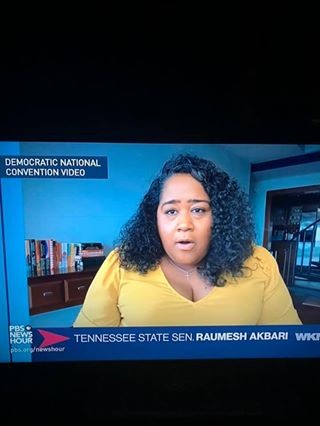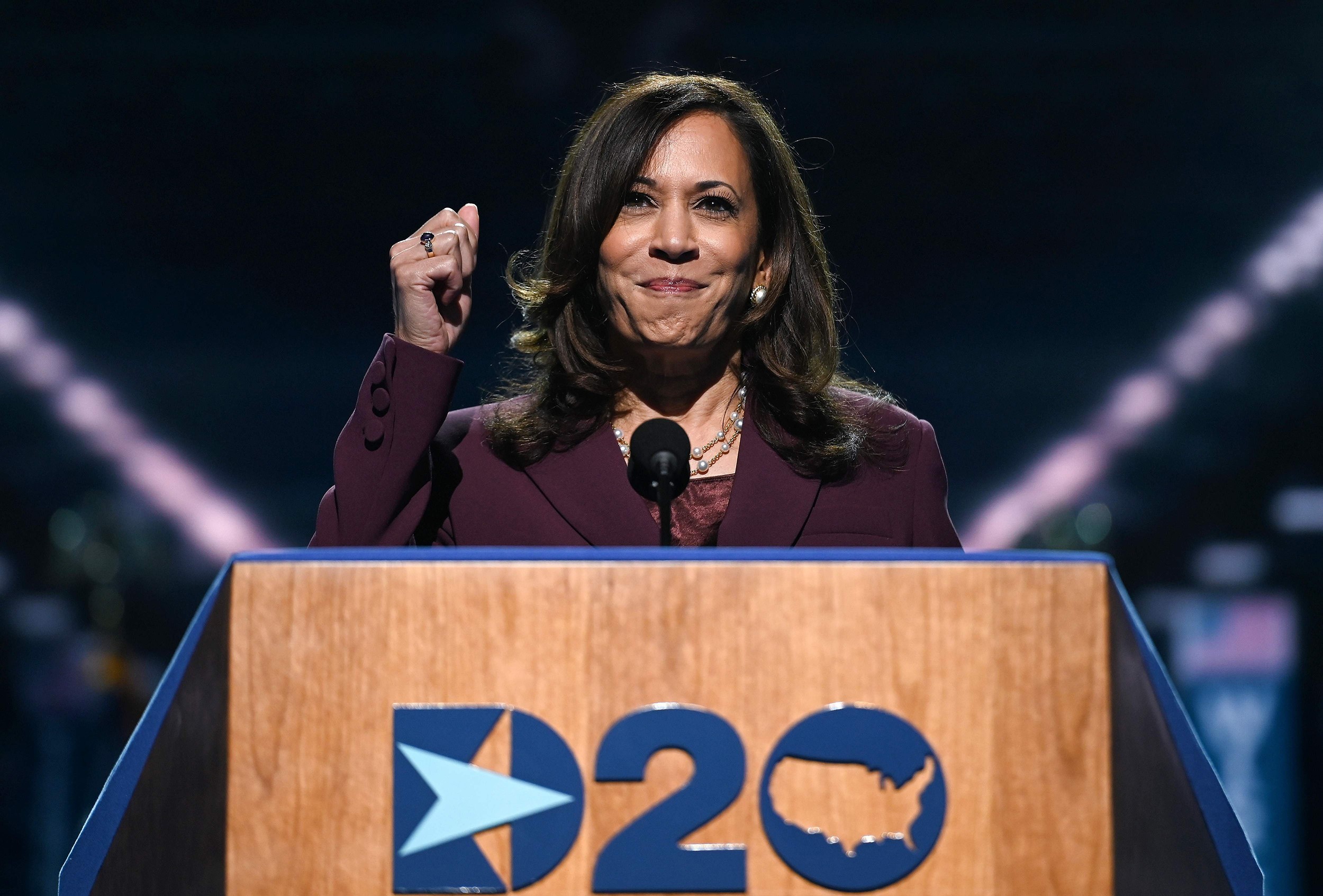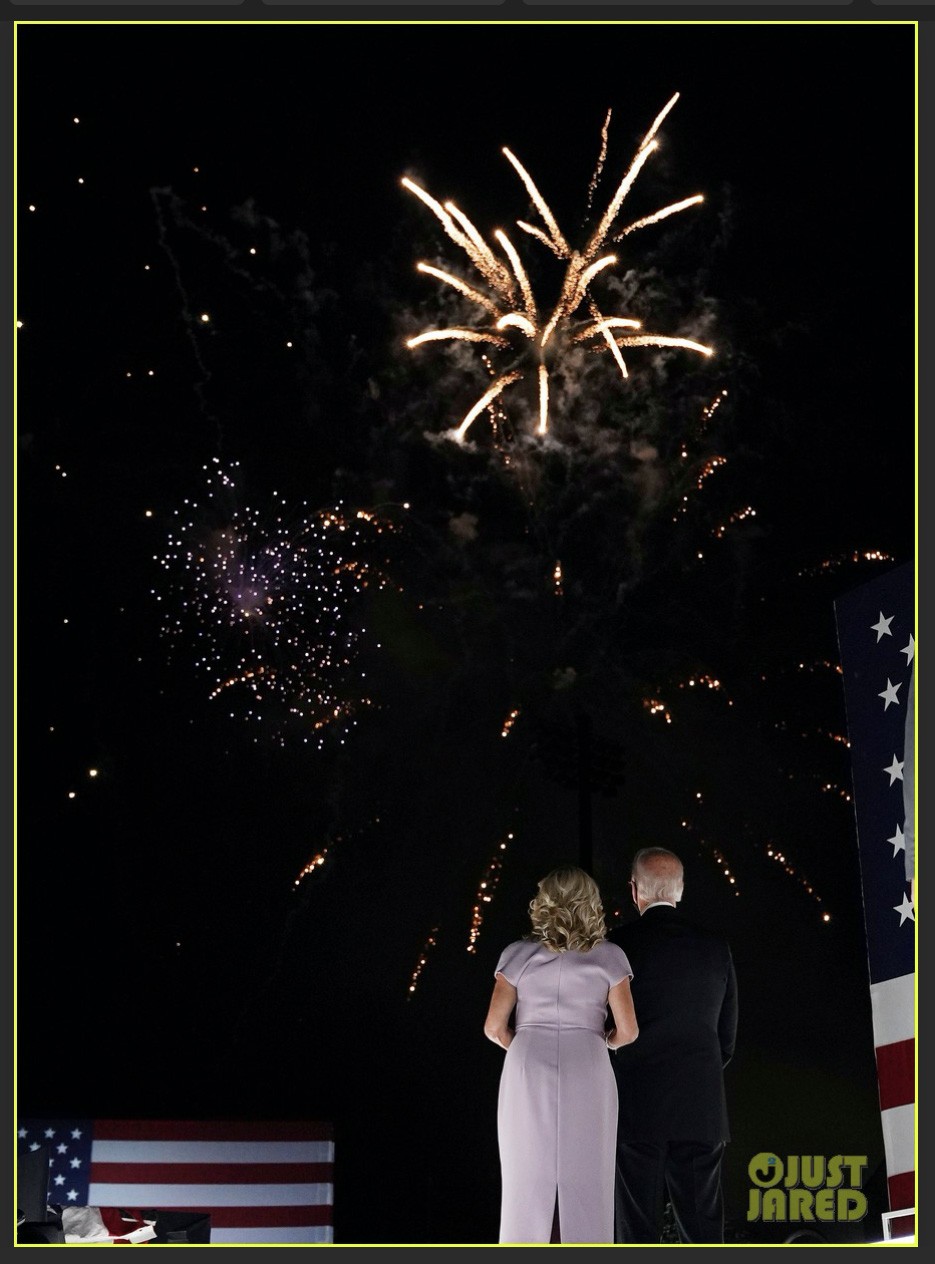My chief fear, as the virtual DNC began on Monday night, was that they didn’t make the mistake of over-producing it. Not for the last time, I found myself wishing it were possible to have a real rough-and-tumble convention.
And, after a needlessly slow start, killing prime time with the kind of desultory welcoming and filler material ordinary conventions start with in the morning or early afternoon, the DNC got going and massed several strong speeches and moments. The point to keep in mind is that in normal convention years the strong stuff starts right away— at 8 p.m. CDT or 9 p.m. EDT.
Having Bernie Sanders on fairly early was a good move toward answering several questions at once. A runner-up in 2020 as he was in 2016, could the Vermont Senator, an 
Bernie Sanders
icon of the progressive left, close ranks with the Democrats’ centrist standard-bearer? Though he had made a speech on behalf of Hillary on opening night of the 2016 convention, it seemed not to have cleared away doubters — either in the Clinton ranks or in his own — and the remaining sense of suspicion left a tuft of malaise stuck to the coordinated campaign.
What he said this time around, speaking on a studio stage to the camera, not only sounded fully sincere, it was less a concession than a bona fide endorsement of the candidate who had bested him, Joe Biden. Indeed, it was the first example, of many to come in the convention, of what might be called testimonials from The Friends of Joe Biden — a group of illustrious and/or affecting exemplars who could implicitly be compared to the cronies and satraps of the incumbent President.
Bernie professed himself open to liberals, moderates, and even conservatives — a statement that put him on the same unity-minded platform as Biden — and provoked this thought: Those folks who worried that Sanders could not appeal to a national electorate, what were they thinking? Nobody could have been more obscure than an Independent Senator from Vermont, and look at the national following he had inspired with his attacks on economic inequality! And, the reality of Trump now a given, who could doubt this time that Bernie’s following would come with him in full support of the Democratic ticket?
In juxtaposition to Bernie Sanders on that first night was John Kasich, the moderate former Governor of Ohio who had been in the Republican field of candidates in 2016 and now served to bracket the ticket’s potential from the other side of the political spectrum. (In a sightly jarring and probably unnecessary acknowledgment of his role, Kasich would say he doubted that a President Biden would take any “hard left” turns.)
Michelle Obama was not a matter of right nor left. Nor was the former First Lady an old-fashioned adornment to the patriarchy. She came across as a truth-teller and a judge, sounding this more-in-sadness-than-in-anger note: “Donald Trump is the wrong president for our country. He has had more than enough time to prove that he can do the job, but he is clearly in over his head. He cannot meet this moment. He 
Bennie Thompson
simply cannot be who we need him to be for us. It is what it is.”
One more notable fact of that and subsequent nights: Mississippi’s venerable African-American congressman Bennie Thompson, sounding agreeably Old-Southern in his role as permanent Convention chair.
How about our girl Raumesh, one of several virtual testifiers on Joe Biden’s behalf to kick off Night Two of the DNC as sequential keynoters. Remember her floor speech from Phiadelphia in 2016? (Hillary, the state Senator from Memphis memorably said, was “a bad sister.” Unfortunately, she was also, arguably, a bad candidate.)

Raumesh Akbari
Raumesh Akbari, in any case, has been sprinkled with stardust twice — deservedly.
And, one thought, lookee at Caroline Kennedy and son Jack Schlossberg in a brief camera turn. Dang, he’s got those looks, almost a double for his late uncle JFK Jr.
A future-tense candidate?
Youth was similarly served by a pro forma nominating speech for Bernie Sanders by New York Congresswoman Aexandria Ocasio Cortez — AOC, as she’s increasingly called in tribute to her out-of-nowhere celebrity as an instant eminence of the left. Her speech was less about Bernie than it was about her wish list for the political future: “… 21st-century social, economic and human rights, including guaranteed health care, higher education, living wages and labor rights for all people in the United States; a movement striving to recognize and repair the wounds of racial injustice, colonization, misogyny and homophobia …”
It may have been obligatory to give time at some point to John Kerry, the party’s unsuccessful 2004 nominee — or was that old footage of Edmund Muskie? Not much, in any case, was advanced from the moment. Former presidents Jimmy Carter and Bill Clinton were more effective links to the party’s past. It is impossible not to respect Carter nor to appreciate Clinton, for all the fresh tarnish on the latter’s image.

Caroline Kennedy and Jack Schlossberg
It was nice to see the friendship between Joe Biden and the late GOP maverick John McCain being remembered — not so much in the somewhat exaggerated hope of attracting fall-away Republicans as to remind the audience of Biden’s ability to work across third rails and party lines.
The absolute hero of the evening — both emotionally and ideologically — was the long-term ALS survivor Ady Barkan, who by his courage, perseverance, and very presence embodied the case for a revamping and extension of national heath care — a wider one, alas, than is envisioned (or at least publicly sanctioned) by Biden.
Jill Biden was a delight, and it was revealing to see her widen the domestic profile of her husband a bit further while giving us a preview of her likely presence-to-be on the national scene.
But, by all odds, the high point of Tuesday night was the roller-coaster ride across America in the form of the live roll call for President — the casting of the votes made sequentially from the scene of each of the nation’s 57 states and territories. What a trip, in every sense of the term! A virtue made of necessity — surely to be repeated in less pandemic future times.
Immigration had been touched on as an issue here and there on the Democratic Convention’s first two nights, but it became something more than that on Night Three when the nation was exposed to videos of 11-year-of Estela Juarez, daughter of an ex-Marine and an undocumented Mexican, crying over her mother’s forced deportation, alternating with excerpts of the President snarling about “animals” and his intention to “move ’em out.”

Estela Juarez
Yes, of course, Trump’s defenders would decry this as a trick of editing and would maintain that he was speaking of criminal elements in the illegals among us. Still, the images of Estela and her mother speak for themselves.
The evening would also see the wounded heroine, former California Congresswoman Gabrielle Giffords, survivor of a shooting at point-blank range in the back of the head by a zealot with a gun.
Another survivor of sorts was Hillary Clinton, the party’s 2016 standard-bearer, whose very presence, as much as her words, was a warning against complacency at the polls. It is pedantry of a sort, even nit-picking, to complain about certain kinds of style points, but here we go: “As the saying goes” is not the right way to introduce a certain famous comment by Ernest Hemingway, which, in its verbatim version, in “A Farewell to Arms,” goes, “The world breaks everyone and afterward many are strong at the broken places.” Unmentioned by Clinton, as by most alluders to the sentiment, is the next sentence: “But those that will not break it kills.”
One very live and unbroken specimen is House Speaker Nancy Pelosi, who took her turn Wednesday night, as did Elizabeth Warren — both of them properly aggressive and examples of the unprecedented prominence of women in today’s Democratic Party.
At one point viewers were treated to a recitation of legislative accomplishments of Joe Biden, one of which was his sponsorship of the Violence Against Women Act. This was appropriate, but also a little brazen, in that Biden, as chairman of the Senate committee looking into sexual-harassment complaints of Anita Hill against then Supreme Court nominee Clarence Thomas, had been regarded as less than properly vigilant.
The night would end with the two biggest moments — a take-no-prisoners address from former president Barack Obama who, from within his customary restrained persona, threw protocol aside and gave it back to his presidential successor, Donald Trump, followed by a This-Is-Your-Life bio of Kamala Harris, and then Harris in the flesh, to accept the vice-presidential nomination.
Obama stood before the cameras as an elder statesman, but you could still sense within him the wunderkind who came from out of nowhere at the 2004 Democratic Convention — the moderate, sensible presence that his political enemies insisted on trying to characterize as a radical Zulu. But Obama’s inner flame never materalized as firebombs; he could provide heat and light but never explosions. So it was this night:
“I never expected that my successor would embrace my vision or continue my policies. I did hope, for the sake of our country, that Donald Trump might show some interest in taking the job seriously; that he might come to feel the weight of the office and discover some reverence for the democracy that had been placed in his care.
“But he never did. For close to four years now, he’s shown no interest in putting in the work; no interest in finding common ground; no interest in using the awesome power of his office to help anyone but himself and his friends; no interest in treating the presidency as anything but one more reality show that he can use to get the attention he craves.
“Donald Trump hasn’t grown into the job because he can’t.”
There was no tit-for-tat to this, no understandable human response to the torrent of verbal abuse he has suffered from Trump. It was, more than anything else, a report card and a severe one.

Kamala Harris
And Harris, when she came on stage, was thereby largely enabled to eschew the tradition vice-presidential role of attacker, so as to complete the job of revealing herself to an America where she is still something of an unknown quantity. Smiling, and not without a fair amount of glamor, she described her scrambled ethnic heritage (part Black, part Indian of the East Asian variety), her stroller-view of the Civil Rights revolution, her rise in the legal world as a professional woman, and her simultaneous persona as a stepmother called Mamala. A homey presence altogether, but still a seasoned prosecutor and very much woke Senator. Someone who could plausibly say, “We can do better and deserve so much more.”
At the end of her remarks she was joined on stage by her husband Doug Emhoff, while the head of the ticket, Biden, stood awkwardly with his wife Jill a good 12 feet away. The two groups waved at each other and at the large overhead Jumbo screen showing a Zoom crowd applauding. No hands joined overhead of the two ticket heads, not in this socially distanced time. With the climactic night to come it all left an air of incompleteness. Or of expectation.
By and large, on the eve of the finale, the Democrats had managed to bring off a passable, even an impressive virtual show. Now, on Night 4, it was up to Joe to deliver. His surrogates, as well as his advance history, had created the profile of a likable, sincere and well-meaning presence. His adversary President Trump, had countered with a gaffe-prone bumbling caricature he called Sleepy Joe.
Thursday night would determine which of those personas would finish up on the stage.
Things didn’t begin all that auspiciously with some cheesy jokes in which Julia Louis-Dreyfus tried to riff on Mike Pence’s “foreign-sounding” name and declared, “I’m proud to be a nasty woman.” Functioning as the evening’s M.C., she would continue to be something of an edgy presence, only fitting into the mood of the Convention at the point later on when she spoke of her bout with cancer, thereby becoming one of the victims for whom Joe Biden is being posited as the hope.
Following a child’s reading of the Pledge of Allegiance, the erstwhile Dixie Chicks — now, post-George Floyd, just The Chicks — did the Star-Spanged Banner, and Sister Simone had to be in there somewhere because Senator Chris Combs thanked her by name when Wolf Blitzer of CNN cued him back in after a station break.
Civil rights icon John Lewis, memorialized upon his death two weeks ago, got one more lengthy reprise, and it seemed appropriate. Still, the evening was mounting toward Joe’s climactic moment, and everything else was patently build-up. Deb Haaland, a Native American member of the House from New Mexico, Cory Booker bloviating, Jon Meacham pontificating, Mayor Pete introducing all the old gang from the Democratic primaries who looked like Hollywood Squares as they traded Joe memories from their places on a Zoom screen.
Michael Bloomberg came on to boost the ticket and excoriate Trump. Smooth and fluent, he went far toward erasing the memory of that flat and defensive debate performance back in the winter that doomed his campaign and prepared the way for the revival of Joe’s.
There was a moment that mesmerized many onlookers when young Brayden Harrington, who met Biden in New Hampshire and was embraced there as a fellow stutterer, worked his way bravely through a reminiscence of the event before what he had to know was a national television audience.
Brayden Harrington
Then we got what looked like a sleepover image featuring the nominee’s four granddaughters, all smiles and fond recollections of their eminent senior kinsman. Steph Curry and his wife and two daughters would add their impressions, and the moment of truth got ever nearer as Biden’s two living children, son Hunter and daughter Ashley, prepared to bring him on with their own recollections.
Ashley is the daughter of second wife Jill, and, Hunter — he of Ukraine fame — is the survivor of two family catastrophes: a car crash that killed Biden’s first wife and a daughter and left both sons hospitalized; and the agonizing death from cancer of brother Beau, an ex-Marine war veteran and state Attorney General in Delaware on his way to higher things when the Reaper intervened.
Joe Biden’s all-too-obvious grief over Beau, coupled with the pummeling Hunter had taken from the Trump crowd, had created inevitably a sense of Hunter as a possible black sheep. He did not appear so Thursday night; in his coming-out before a national audience he looked and sounded like Joe’s son in every particular, more so than Beau in many ways. He was sympathetic and sincere about his dad, and Ashley, a bright presence, was another revelation.
And finally, after we got a filmed bio of the nominee’s life and times, the triumphs and tragedies, along with the curriculum vitae details of his long government service, there he was, all by himself, Joe Biden.
At this point, I am going to presume to borrow from a Facebook post by by former colleague and frequent partner on the campaign trail, Chris Davis:
“Joe did good. Between his lifelong stutter and a real affinity for putting his foot in his mouth, oratory never has been his thing. But tonight’s performance reminded me of the turning point in narrative cinema when filmmakers realized movies were fundamentally different than stage plays. This wasn’t the typical convention where viewers at home watched a public speaking event built to ignite a massive live audience. It has been intimate, if sometimes imperfect. One commentator positively described it as an infomercial, and that’s not a terrible comparison. I’ll continue to hold breath every time I see him on a live mic. But tonight Joe did good, and as several folks have pointed out before me, the medium really worked for him.”

Joe Biden
That’s one way of putting it. And the content of Biden’s speech complemented everything else that had been said and done earlier in the convention — in its concern for the powerless and the victims of injustice, its determination to transcend the Charleston debacle and fat-cat white supremacy and achieve at long last something resembling racial equity; in its defense of beleaguered pubic institutions like the Affordable Care
Act and the Postal Service; in its determination to revive our foreign alliances and confront the adversaries that the Trump administration has ignored or coddled; in its simple avowal that government is meant to serve and protect the American people.
“This is not a partisan moment. This must be an American moment,” Biden said. “This
is our moment to make hope and history rhyme.”
And with that the ticket’s two couples were on stage together again, waving at the applause on the Jumbo Zoom screen and, with obvious delight, turning to face the sky auspiciously exploding in fireworks.

